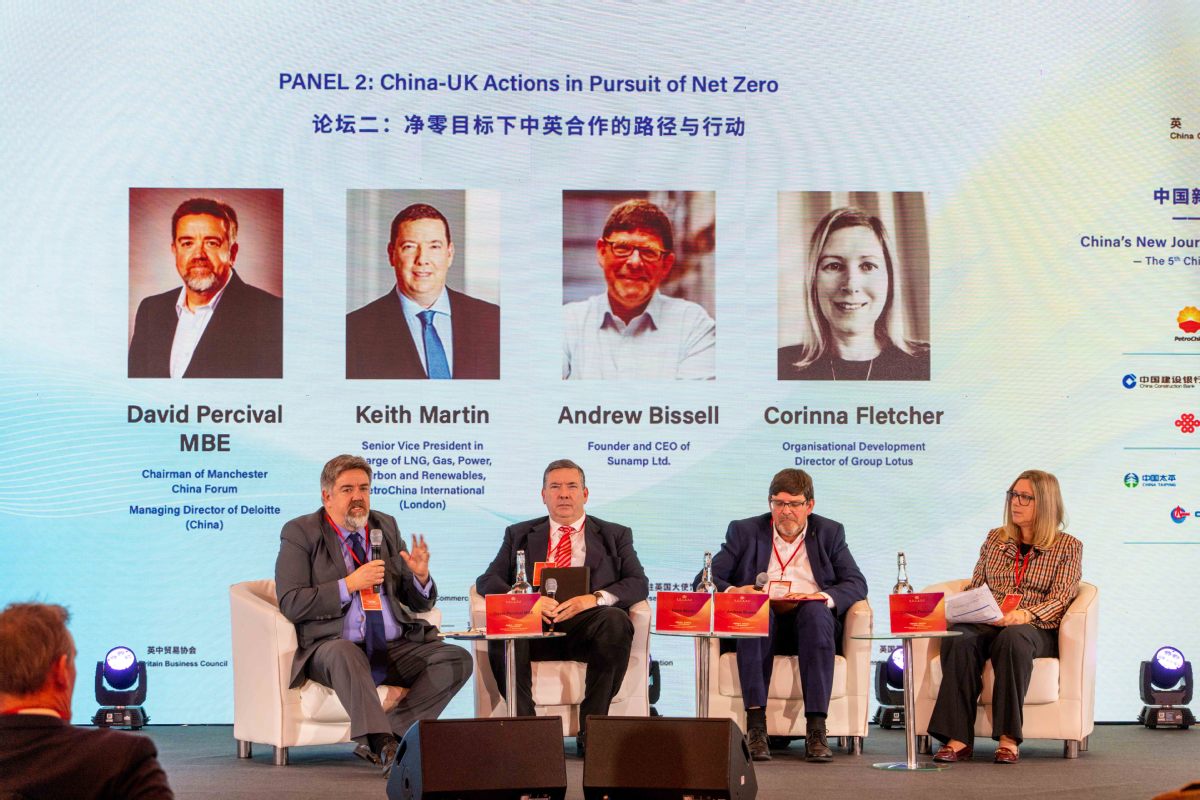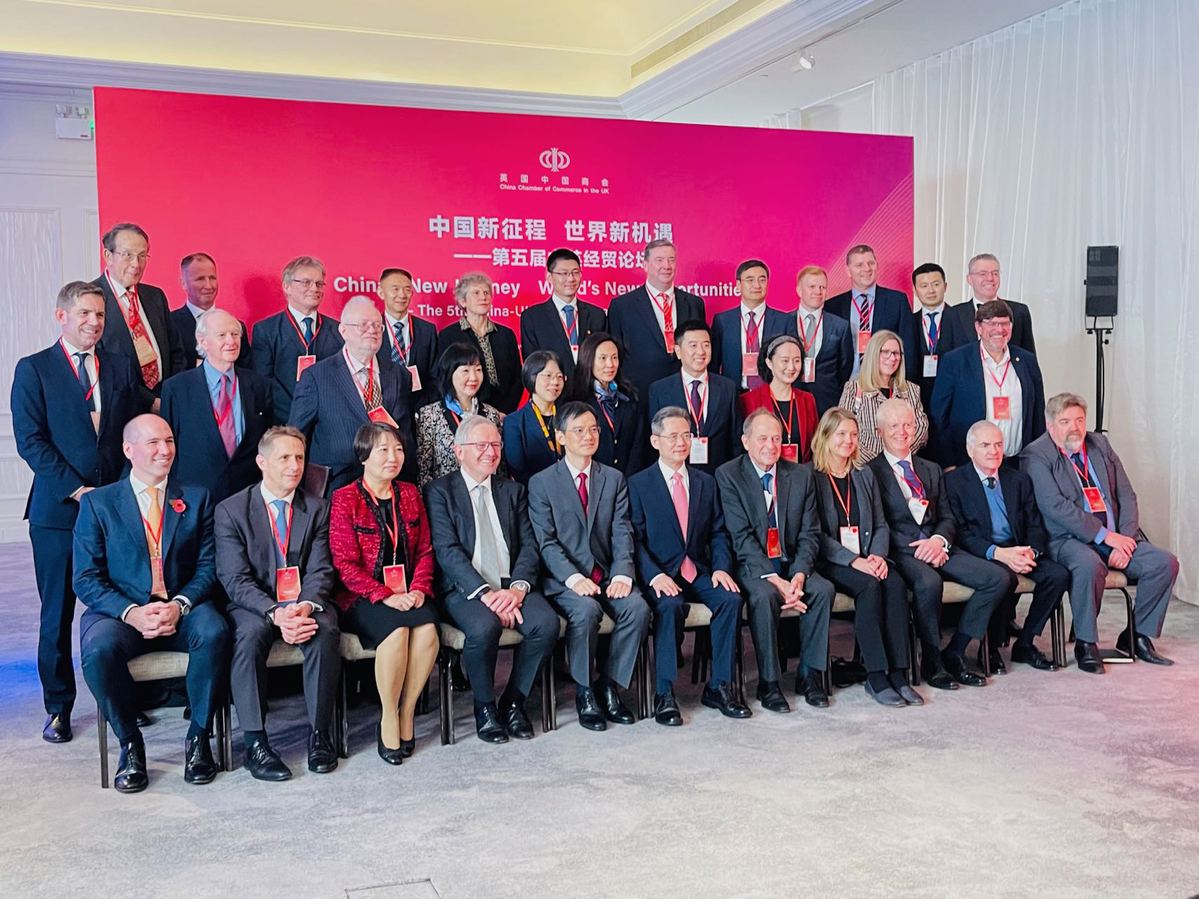Enterprises sign on to transition to net-zero


United Kingdom and Chinese companies shared their carbon-busting strategies at a conference in London this week, including an oil and gas giant going green and an iconic British car brand ditching petrol engines.
The 5th China-UK Economic and Trade Forum saw 300 political, business, and academic figures join together in the capital to discuss the future of the Sino-British relationship, with regional development strategies and the road to net-zero top of the agenda.
China's Ambassador to the UK Zheng Zeguang said that both nations are "well positioned to enhance exchanges" on the climate response and said that China will continue to "pursue green and sustainable development and will work to avoid ecological degradation".
The UK has set a target of achieving net-zero emissions by 2050, and China has committed to a 2060 deadline. At the United Nations Climate Change Conference in Glasgow last year, known as COP26, the Chinese delegation encouraged countries to commit to "action, not empty slogans".
Stephen Perry, who is chairman of the 48 Group Club, a non-profit organization that promotes China-UK trade and commerce links, said the UK and other western powers could learn from China's energy transition.
"Glasgow was the time when reality took over from the headlines," Perry told China Daily at this week's trade conference, which was hosted by the China Chamber of Commerce in the UK. "Most of the nation-states were talking in soundbites to sound good. What China did was say 2060, and it is not a figure we have taken out of the air, we have been working for the last 30 years to figure out how we can get to zero."
He added: "China is absolutely committed to 2060, and it will happen, that's how China works. It doesn't make these targets and then work out how to get there; they make these targets as a consequence of working out how to get there and how long it will take. We can learn from China, long-term planning is key."
Along with committing to emissions targets, both the UK and China have encouraged businesses to develop carbon-cutting strategies.

During a panel dedicated to China-UK actions in the pursuit of net-zero, Corinna Fletcher, who is the organizational development director at car manufacturer Lotus, outlined her company's fossil fuel-free future.
Fletcher said that the company, which is majority-owned by Chinese automaker Geely, designed its last combustion engine this year.
"All of our new product launches from 2023 will be all-electric vehicles," she said. "We have committed to cutting emissions and leading our industry in minimizing impact on the environment, benefiting society and the planet as a whole. Customers are demanding more sustainable products, so there is also a really strong commercial argument."
Lotus has been making cars for 74 years, and the company grew to prominence with its Formula 1 racing team, which won seven championships. Geely took a 51 percent controlling stake in the company in 2017, and the Chinese carmaker has invested heavily in the switch to electric. Geely also owns the London Electric Vehicle Company, which produces the electric model of the London black taxi.
At the trade conference, Keith Martin, who is senior vice president of PetroChina International, outlined the company's plans to shift from fossil fuel production to renewable energy. PetroChina, which is China's largest oil and gas producer, aims for renewables to comprise one-third of its energy portfolio by 2030, increasing to 50 percent by 2050. The company also plans to peak carbon emissions by 2025, and target net-zero for 2050.
"PetroChina has embraced the energy transition with vigor," Martin said. "And we feel a wave of support from China to get to that net-zero target."
The conference also heard from Andrew Bissell, founder of Scottish company Sunamp, which makes smart thermal storage solutions. Thermal batteries provide low-carbon heating and hot water for buildings, and the technology helps to stabilize grids that run on renewable power, which is a fluctuating power source.
Sunamp recently signed a 50-million-pound ($55.8-million) partnership with Chinese company Thumos, which includes the installation of 400 batteries into high-end apartments in Shanghai. Sunamp technology is also used in some social housing in the UK.
"I want to do it for every home in China, I want to do it for every home in the UK, I want to do it for every home in the world," said Bissell.

































